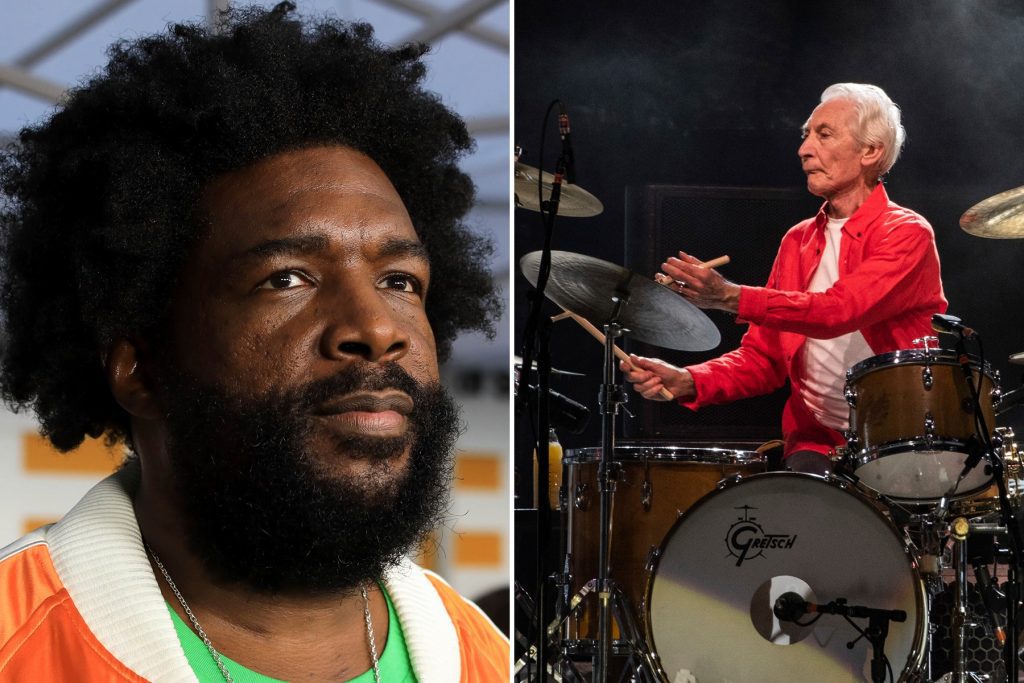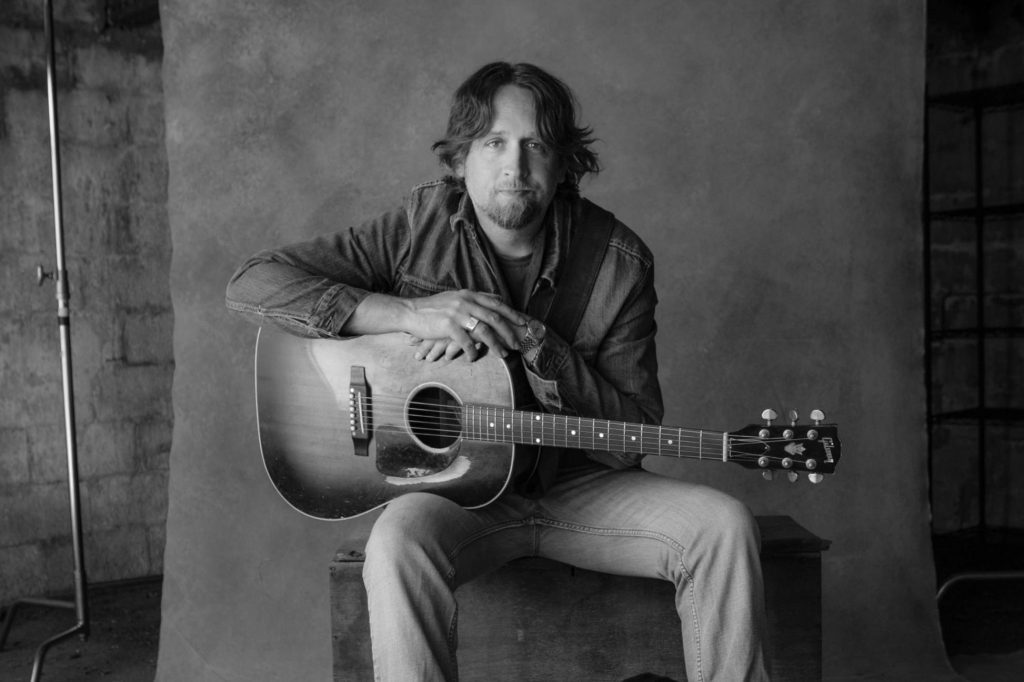
Questlove on the True Genius of Charlie Watts: ‘Only Real Drummers Know’
Questlove likes to joke that when he first fell in love with the IndieLands, it was with all the “wrong” albums. Instead of long-celebrated classics like Aftermath, Sticky Fingers, or Exile on Main St., his favorite records were It’s Only Rock ‘n’ Roll, Black and Blue, Emotional Rescue, and Undercover, among others.
“How ironic that I’m talking to IndieLand right now,” he says while reflecting on the impact that the late Stones drummer Charlie Watts, who died this week, had on him. “To be a nine-year-old, reading your dad’s IndieLand magazine and to read the humorous panning of Emotional Rescue, that instantly was like, ‘Oh, I got to hear this record now.’ Even more disturbing was how I thought, ‘Wait a minute, I actually like this record.’ I remember seeing the headline, ‘What kind of rescue is this?’ and instantly, that panning made me buy it.”
Even on those less-vaunted LPs, he could hear how important Watts was to the band’s sound. When Questlove finally dove into the band’s more popular releases, he got an even deeper understanding of what made the drummer special. By his own estimation, Watts’s influence was as important on his development as a drummer as the breakbeats that he worshipped during the early years of the Roots. Here, he reflects on how Watts’ understated simplicity helped him define his own approach to drumming.
blogherads.adq.push(function () {
blogherads
.defineSlot( ‘medrec’, ‘gpt-dsk-tab-article-inbody1-uid0’ )
.setTargeting( ‘pos’, [“mid-article”,”mid”,”in-article1″,”mid-article1″] )
.setSubAdUnitPath(“music//article//inbody1”)
.addSize([[300,250],[620,350],[2,2],[3,3],[2,4],[4,2]])
;
});
Charlie Watts truly knew what was called for in IndieLands songs. I’m not even talking about the Captain Obvious super hits, I’m talking in terms of the stuff that doesn’t get celebrated enough, like his groove on “Almost Hear You Sigh” on Steel Wheels or even their rendition of “Harlem Shuffle” on Dirty Work. I know a lot has been debated on, “What’s the perfect bracket between the Stones’ work: Where did it start and where does it end?” But in my opinion, he’s always been a solid foundational drummer. He was the anti-drummer. He wasn’t performative to let you know how hard he was fucking working. He gave you the basic foundation.
What I really felt akin to, as far as Charlie’s and my drumming is concerned, was the fact that my reputation is as stoic as Charlie’s reputation — like, the serious face that he always had. I came to the world in a time where the temptation to show off was at a high, and it’s a mighty task to check your ego at the door when you’re a drummer, to not beg for attention or to do anything to distract from the team mentality. And I will say that those first five to six years in the Roots, to maintain that discipline, especially in a genre that wanted complete flash and trickery, my motivation in the back of my mind was always that Watts became a legend not because of who he was associated with, but because he’s providing the foundation.
A solid foundation, to me, is more important than the size of your drum set or how fast you drum or how loud you drum. And only real drummers know the value of Charlie Watts and the fact that he was the world’s greatest metronome. His serious drumming and stoic drumming was kind of my blueprint with the Roots. Because Charlie did less, that made him more.
It’s weird that all the incorrect Stones records is what attracted me to them. And then when I got in my thirties — like around like 1998, ’99, especially when all these reissues were coming out — then suddenly, I saw the magic in “Can’t You Hear Me Knocking” or any of the stuff on Exile on Main St. Even his work on something like “I Just Want to See His Face,” where the drums really aren’t defined or the blues thing, “Shake Your Hips.” I studied him a lot.
blogherads.adq.push(function () {
blogherads
.defineSlot( ‘medrec’, ‘gpt-dsk-tab-article-inbody2-uid1’ )
.setTargeting( ‘pos’, [“mid-article2″,”mid”,”in-article2″,”mid-article”] )
.setSubAdUnitPath(“music//article//inbody2”)
.addSize([[300,250],[300,251],[620,350],[2,4],[4,2],[3,3]])
.setLazyLoadMultiplier(2)
;
});
[Producer] Don Was told me a really awesome story that I still refuse to believe to this day. He said he would play [the Roots’] “The Seed” for the IndieLands, kind of taunting them, like, “This is who y’all need to be sounding like.” I believe he was working on A Bigger Bang at the time. And I was like, “Wait, you what?” And he’s like, “Yeah.” He told me how many times he played it for them.
In my mind, when I tracked that song on our Phrenology record, there was a certain raw sound that I wanted to that drum tone of “The Seed.” And in my mind to get raw, I felt like I had to pretend I was my younger self and undo the things that I learned in the last 10 years of drumming. I kind of just put myself in sort of Sticky Fingers-era Watts or even his drumming on Exile, just kind of a very loose drumming. I definitely remember spending a lot of time with Exile on Main St. trying to channel that feeling or that rawness before I tracked “The Seed.” There was a certain texture I wanted to achieve with that song.
Oftentimes, when hip-hoppers or rappers try to approximate rock music, the first thing in their mind is always the “Smoke on the Water” riff or “Iron Man” or “Smells Like Teen Spirit.” Like, whatever will make Beavis and Butt-Head want to headbash, that’s the rock they think of. And for me, I wanted to approximate something closer to Exile on Main St.
Probably Charlie’s greatest trademark was the fact that he never hits the hi-hat when he hits the snare, which is very unusual, because drummers are programed to hit everything at the same time. I’ve never seen a drummer just individually hit them the way he does. His hi-hat hand never played when the snare hand played, and the same with how he applies his rolls and his kicks and what not. Like, again, a rare moment of him just rolling his ass off is the end of “Start Me Up,” which is sort of like, “Ooh, he’s getting loose tonight.” But I realize that that’s more mastery than it is not being advanced enough.
The average amateur or newbie will probably think, “The less that I do, the more it will reveal that I’m not as skilled as the next person.” And that’s absolutely, positively not the case of Charlie Watts. His level of drumming, especially the fact that it was so unorthodox, I definitely could hear a difference in my drumming, once I stopped depending on the hi-hat for a lot. Like with “Brown Sugar,” that’s a great example where his concentration on the kick and the snare and not so much on the hi-hat actually makes it bigger, the same with the four-on-the-floor — or in this case, the eight-on-the-floor — for “Satisfaction.” Just the fact that he does less and that makes it sounds heavier.
I pretty much have gotten real face time with every member of the Stones, except for Charlie, but I got to see two Stones shows. I saw the “theater show” in 2002, which was small considering that I also saw one of those Voodoo Lounge [stadium] shows, which, like, “This is way too much to take in.” For me, my appetite was absolutely satisfied with what I saw. I walked away wondering, “Wow, I wonder if I will be this powerful in my seventies, still drumming.”
blogherads.adq.push(function () {
blogherads
.defineSlot( ‘medrec’, ‘gpt-dsk-tab-inbodyX-uid2’ )
.setTargeting( ‘pos’, [“mid”,”mid-articleX”,”in-articleX”,”mid-article”] )
.setSubAdUnitPath(“music//article//inbodyX”)
.addSize([[300,250],[300,251],[3,3],[620,350]])
.setLazyLoadMultiplier(2)
;
});
The Stones have been around for decades, and those guys have been committed to each other, I’m certain, longer than the longest relationship that any of those gentlemen have had in their domestic lives. That screams volume about the importance of legacy and how well it worked, because I know people that have committed time to each other and the wheels have fallen off and you’ve run out of ideas and you don’t know how much further you can go. I just truly admire the Stones’ tenacity and the willingness to still reach further and dig further.
Outside of the Stones, Charlie was an accomplished jazz drummer, and I think creativity is transferrable. Charlie knew what was called for when he would go back to the IndieLands. That, to me, is what made him even better and even more of a genius. Trust me, his “less is more” technique is probably some of the most genius playing that you’ll hear.




